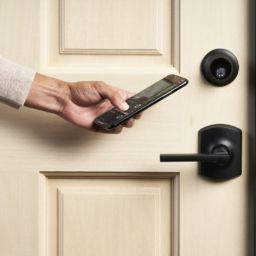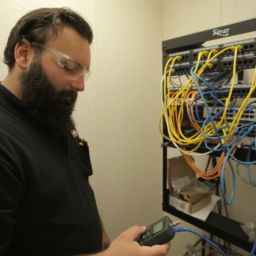Regardless of which type you end up installing, a wired or wireless home security system, the most important thing is that you’re taking the step. You are going to make your home, office, or business a safer place. But between wired and wireless home security systems, which type will work best for you?
The most significant difference between the two is how the devices communicate within the system. It is a matter of radiofrequency (rf) contacts or wired contacts. Contacts on windows and doors and sensors that monitor larger areas, such as motion detection or glass break sensors, communicate to the alarm panel in the same way. How those matter to a consumer comes down to personal preference and the recommendation of your security company. Proactively looking into this means that either way, you will help more strongly secure your house, valuables, family, and more. See the ins and outs of each system — its nuances, pros, and cons — to decide which is the right fit for you:
Tried and True, A Wired Security System Is Just What It Sounds Like
You won’t be surprised to learn that a wired security system functions through a network of wires contacts and strategically placed sensors throughout your home. These wires take in information and send it back to the control panel, wherever that may be in your residence. The alarm panel is then hooked up via connected cables to landline telephone wiring or a cellular network to communicate the alarm status to a central monitoring station.
If you have an existing older alarm system, it will likely have been installed as a wired system. Having cables run through might seem like a hassle in an existing home and can take additional install time. Though, if you are building a new home, this could be a more cost-effective approach. Be sure to involve your alarm company early in the construction phase. It will be far easier and less expensive to install a wired alarm system when the walls are open.
Wireless Alarms
Wireless home security systems rely on rf contacts as opposed to wired ones. A wireless system will be easier to install when starting from scratch: there are no wires to run through your walls. When it comes to installing wireless alarm sensors, placement is flexible as long as they’re in reach of the alarm network. Therefore, your system is only as dependable as the alarm network itself. Professional installers will “derate” or lower the transmit and receive power during the install. This additional step will ensure that the signal strength in the alarm network will be sufficient when they reset it to full force after testing.
These days, many choose a specific alarm system because they can often sync up to one’s smartphone. Meaning you can check on things quickly when out of the office or home. You can even ask Alexa to report back to you. These features are not related to whether an alarm system is wireless or wired. Both types of systems can have this capability.
Wireless vs. rf contacts: Which is Better?
Here we come to the critical question, but as stated, both systems will help keep a secure and monitored home while you’re there and away. If you don’t already have a cabling system in your home, installing one can come with some fees. Wireless may be favored here, but it can be more challenging for the network to capture everything if you have a larger home. Plus, the system also runs on batteries, so you will occasionally replace the batteries in each sensor. A good alarm system will inform you when a battery is getting low, giving you plenty of time to change it. Both of these system types are secure and installing either will provide the additional level of safety you are looking to achieve.
Choosing between wired or wireless home security systems can be a complex process. The Security Professionals are an expert team that is not interested in selling your home or office a particular product. Instead, we see which product is best suited for your specific needs and budget. Get in touch with us today to see how we can help with your security and locksmithing needs.







